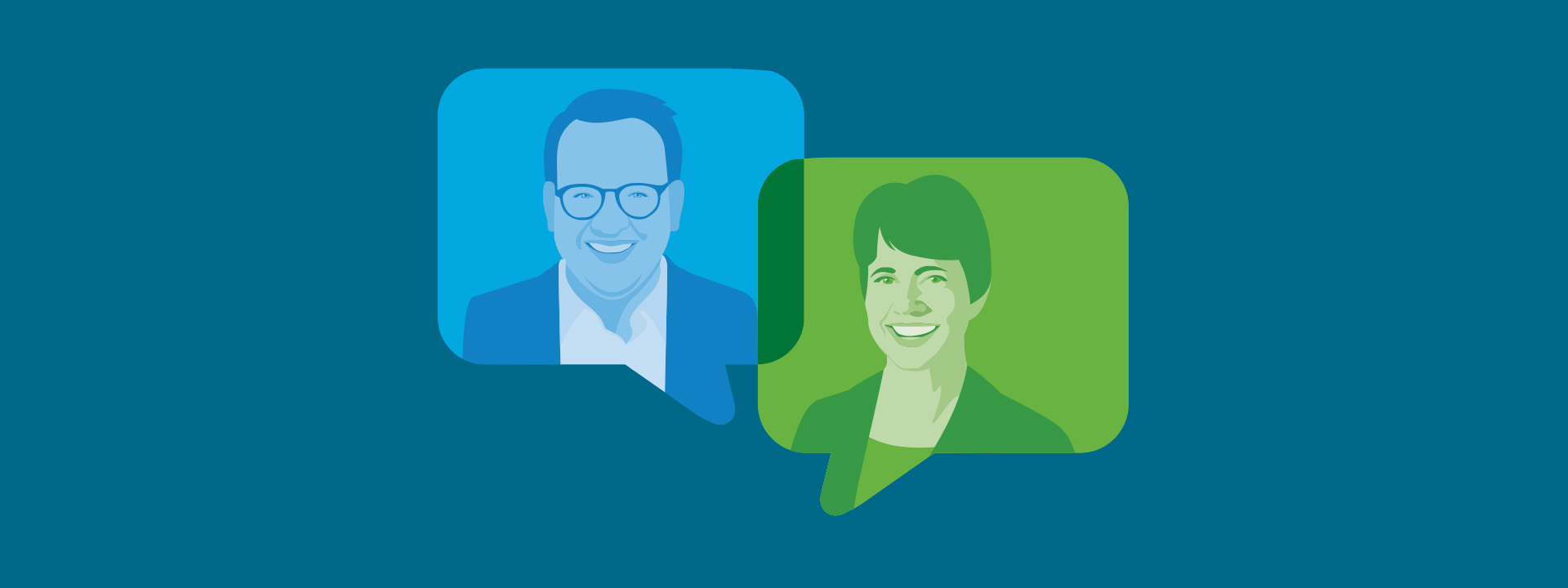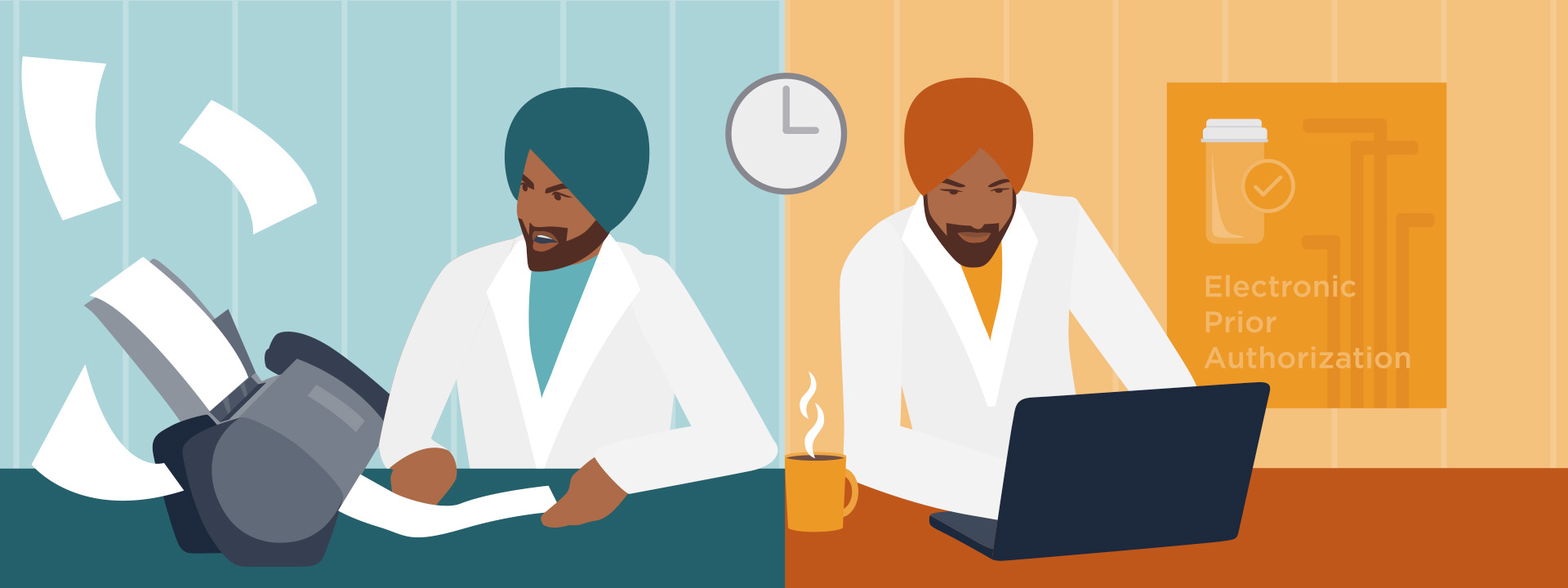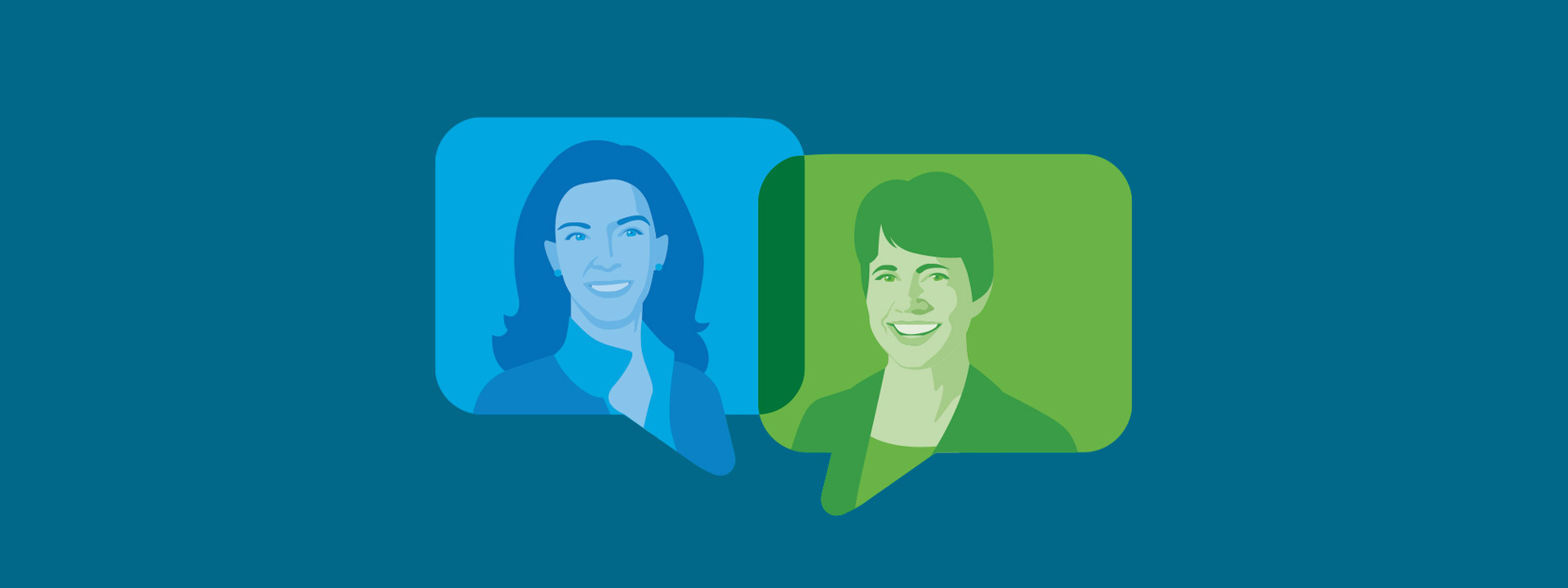“It’s disheartening how many providers are leaving healthcare because they’re burnt out,” says Dr. Nele Jessel, Chief Medical Officer of athenahealth. “There’s got to be a better way,” Jessel says on our podcast, which is why she’s working to fuse old-fashioned medicine with high technology.
Dr. Nele Jessel had plans—at three years old—to become a mother baby nurse (a.k.a. postpartum nurse), helping mothers and their newborns. And she has a picture to prove it: “I’m treating all my baby dolls,” Jessel says on the sixth episode of our podcast. “I’m dressed up like a nurse with a little white apron, a little white nursing cap.”
Jessel grew up in the mountains of Germany, where she swam in the cool water, went hiking, and picked blueberries. “I had a great childhood,” she says. Later, her family moved to the city of Hamburg, and then it was time to put the plans she made as a three-year-old in motion: She enrolled at the Philipps University of Marburg, roughly four hours south of Hamburg, to study medicine.
Today, Jessel considers herself to be a “perennial optimist” when it comes to health technology, which she acknowledges as a fairly contrarian view among care providers.
But perennial optimism doesn’t mean rose-tinted glasses.
As a board-certified clinical informaticist and pediatrician, technology has become the focus of Jessel’s career. After moving from Germany to the U.S.—where she earned her second license to practice medicine—Jessel’s encounters with early versions of the electronic health record (EHR) pushed her to open her own practice, so she could build systems the way she wanted.
“The reality was somewhat lacking,” Jessel says of early health technology. At first, she was excited about its implementation, but the technology worked against her. There were “lots of unnecessary clicks,” she says, “and untold hours trying to piece documentation together.”
In her own practice, Jessel’s goal was simple (in theory, at least): Find a way to practice old-fashioned medicine in a high-tech setting, by automating as much as she could, and freeing time for patient care. No more charts stacked to the ceiling. No more binders lugged around by pediatric patients’ families. No more staying late to complete paperwork. If necessary, Jessel says, "I can finish my chart from my daughter's soccer field at night."
Fusing old-fashioned medicine with high technology was her goal in private practice then, and it remains her goal as the chief medical officer of athenahealth now. After all, she says, many providers still feel that technology is an obstacle to patient care.
And here she offers perhaps the clearest example of all.
“It’s my pet peeve,” Jessel says. “How many times have you come into an exam room, and the physician had their back to you, sitting in the corner, staring at the screen?” That’s why so many providers see technology as an obstacle. “Why?” Jessel asks. “Because they’re forced to turn their back to the patient.”
Hear more of Dr. Nele Jessel’s ideas about making health technology work for providers—not the other way around—on the sixth episode of our podcast. And be sure to subscribe on your favorite streaming platform to catch future episodes.


 Dean Riggott Photography
Surescripts
Dean Riggott Photography
Surescripts





